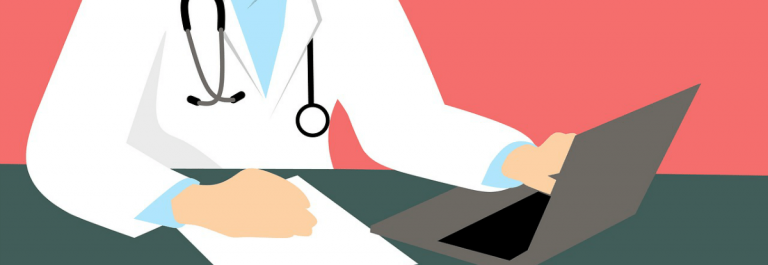The Medical Negligence Blog



Royal Derby Hospital gynaecologist investigation
Following the initial allegations of alleged malpractice against former consultant Daniel Hay, the Royal Derby Hospital gynaecologist investigation went on to inform more women of their potential involvement in the ongoing review of his patients. To date, the doctor has reportedly been found to have “unnecessarily harmed” 8 women who had undergone significant surgery under his care.
Further developments emerged toward the end of 2020 that reportedly pushed up the total to 382 of the gynaecologist’s former patients being implicated in the investigation. It is understood that the majority of these women reportedly have no need to worry about immediate health concerns, according to the trust. However, given the length of his service at the hospital, we would not be surprised if the investigation further widened as it already has done so far.
Any women who have suffered at the hands of the gynaecologist may be eligible to claim compensation if negligence has been involved. If more victims should be identified, we are here to help them pursue recompense for the harm inflicted upon them, and eligible clients can benefit from No Win, No Fee legal representation.

Claiming medical negligence for eye injuries
You could be eligible to claim compensation by way of a legal case for medical negligence for eye injuries if you have suffered any damage to this vital sensory organ.
Eye injuries can be some of the most severe that we represent people for given the impact that an eye injury can have on the victim. Sight loss can completely change the life of an injured person, even if it is loss in one eye or even partial loss of vision in one or both eyes. It will have an impact, from going about your everyday lives to how you are able to operate at work. This is why it is important to access specialist legal help for an injury of this nature, and we can offer just that.

Endocarditis misdiagnosis – compensation claims
There are some diseases or health conditions that require a quick diagnosis to bring the issue under control and give the patient their best chance of recovery. Endocarditis can be one such illness, as it can be fatal in the worst circumstances, particularly if left untreated. As such, an endocarditis misdiagnosis can be one of the most damaging forms of medical negligence that we may encounter in this specialist area of law.
Whilst endocarditis can be a rare condition, this does not excuse doctors and healthcare professionals from being able to identify its signs. It is vital that necessary precautions are taken when a patient seems to be exhibiting the symptoms of this condition, as a failure to act could have serious implications for the patient.
We all put our faith it the expertise of our doctors but, unfortunately, medical care does not always meet the standards we have come to expect on some occasions. However difficult the circumstances, doctors have an obligation to treat their patients to the best of their ability. Where they fail to do so, they may be in breach of their professional duties. If you have been affected by an incident like this, you may be able to pursue a medical negligence claim for personal injury compensation now.

Claiming compensation for a fall in a hospital
When patients are admitted to a hospital, they are there to receive necessary treatment, and often for a period of care and recovery too. We, therefore, expect hospitals to be safe environments, in which patients are cared for until they have the ability to care for themselves at home. However, if staff do not monitor and maintain the safety of the hospital environment, risks may emerge that can put patients in danger. A fall in a hospital is one example of an accident that can be provoked when organisations fail to keep hazards at bay.
A fall may seem like a minor problem, but to elderly people or those with existing mobility issues, it can cause long-term complications. As such, it is important that any potentially negligent actions that may have led to a fall are thoroughly investigated, as the affected patient may be entitled to claim medical negligence compensation.

Claiming medical negligence compensation for joint problems
Claiming medical negligence compensation for joint problems can be a vital course of action for patients to take in order to achieve some form of justice when negligence has occurred.
Our joints are some of the most important parts of our bodies to allow us to move about and carry on with our everyday lives in the best possible way. This is especially the case when it comes to major joints such as our knees, shoulders, elbows, and hips. As a person suffering from a permanent knee joint injury, I can tell you from personal experience just how much it can hinder your life: each and every day!
So, when you suffer as a result of an avoidable event that has stemmed from negligence, justice is important. That is why we, as Specialist Medical Negligence Lawyers, are here to help.

Compensation claims for gynaecology negligence
Compensation claims for gynaecology negligence can be some of the most severe and serious types of cases that we take on for people on a No Win, No Fee basis.
This intimate and sensitive area can leave patients with lifelong physical, mental and interpersonal complications when an injury is sustained. As specialist Medical Negligence Lawyers, we understand the severity of the harm that can be caused and what we can do about it from a legal perspective.
As we often say, we cannot turn back the clocks. But, what we can do is fight for some form of justice for you by way of a clinical negligence claim for compensation.

Claiming compensation for a medical mistake
When undergoing medical training, doctors learn how to conduct rigorous treatments and procedures, and must abide by high professional standards for as long as they practice. There is no room for mistakes in medicine but, unfortunately, some patients do fall victim to needless errors made by healthcare professionals. If you have been adversely affected by a medical mistake, you may be able to claim compensation for any harm caused.
While other forms of negligence can be caused by misjudgments, such as an incorrect diagnosis or a failure to investigate symptoms, medical mistakes could describe the basic errors that can be made in the course of procedures or treatment. Often, these mistakes occur through entirely preventable missteps, which can only make them more upsetting and frustrating for the victims.
When medical professionals breach their duty of care and your health suffers as a result, you can be within your rights to claim compensation for any harm caused. We know how difficult it can be for victims in the aftermath of medical negligence, which is why we use our sensitivity and expertise to guide our clients through the claim process.

Being sent home from hospital – claim for negligence
Though some hospital admissions can arise from minor health problems, patients are often admitted to hospital when their health is in severe decline, or in cases where emergency care is required. As a result, it is highly important that doctors and nurses carefully track their patients’ recovery and rehabilitation to ensure that they are definitely ready to be sent home from hospital. As this falls within the realms of their professional duties, you could be eligible to claim compensation for being sent home from hospital at the wrong moment if your health was adversely affected.
If patients are unable to cope after being sent home from hospital, it can cause severe damage to their health, or it may even mean that they are unable to recover properly, or at all. Cases of negligent hospital discharge can be particularly serious if the patient lives alone, as they may be left vulnerable and isolated if no one is there to help them in an emergency.
Healthcare is all about risk management, and if doctors fail to do this correctly, they may be liable for medical negligence. By making a medical negligence claim, you could be eligible to recover compensation for any harm caused.

Safe maternity unit claims disproven in maternity care scandal
With the completion of false self-assessments affecting some maternity units, a number of hospitals are now having to pay back millions of pounds to regulators. Some of the hospitals in question were already facing suspicion amid medical negligence claims and allegations of avoidable baby deaths, but it has since been confirmed that some 14 NHS trusts reportedly failed regarding at least one of the safety actions recommended. Of the 7 required to pay fines, each trust reportedly falsely claimed it had a safe maternity unit.
While the news may come as a shock to some, for those affected by poor maternity care, this development may be unsurprising. Indeed, figures have already shown just how much harm has been suffered by families due to negligent maternity services. In 2018-19, for medical negligence claims brought against the NHS, 60% of claims reportedly involved maternity care.
If you have been adversely affected by poor maternity care, you may be able to make a medical negligence claim. To discuss your case and find out more about how we could help you, do not hesitate to contact us for free, no-obligation advice.

Claiming compensation for a diagnosis delay
When tackling medical conditions, a swift diagnosis is often key to ensuring successful treatment but there can, unfortunately, be bumps in the road that can slow the process down. Sometimes, a slow referral or a postponed appointment will not have an adverse impact on your health, but in cases where your condition worsens, you may be able to claim compensation for the harmful effects of any negligent diagnosis delay.
As medical negligence specialists, we have seen many patients let down by the people and the system that is supposed to care for them. Healthcare professionals have a duty to ensure diagnoses are made in a timely and accurate manner. If they fail in this responsibility, you could have every right to feel let down, particularly in cases where irrevocable damage is done to your health.
If you are considering pursuing a medical negligence claim, you can contact us today for free, no-obligation advice on your case.

When a patient undergoes surgery, it is likely that they may develop a scar if any incisions are required in the procedure. In most cases, the scarring is a minor and normal result of the procedure, but there can be cases in which medical negligence has caused an unnecessary degree of scarring. In situations such as these, victims may be able to bring scarring injury claims.
As a result of medical advances, many surgical scars can be minimised and may even fade over time, meaning there is little evidence of the procedures that patients have undergone. However, this also means that excessive scarring can act as evidence of the errors made by a doctor.
In the worst cases, patients can endure physical pain and/or psychological suffering as a result of scarring injuries, potentially developing a negative body image. We know how difficult it can be for the victim, so we want to make sure all those affected by scarring injuries can recover the compensation they deserve.

Medical negligence compensation for infertility
When infertility prevents an individual’s or a couple’s ability to have children, the effects can be life-changing. To have the chance to start a family taken away from you is highly distressing under any circumstances, but it can be even more troubling when infertility has been provoked by medical negligence and could have been avoidable. Anyone who has been affected by this traumatic form of clinical negligence may be able to claim compensation for infertility problems.
Infertility can arise under many different circumstances, as the medical negligence may have arisen in the treatment of a condition that was completely unrelated to fertility. Our expertise in the area of clinical negligence allows us to closely examine all the complicated medical details to ensure you receive the best possible resolution to your legal case.
We are here to help you as best as we can.